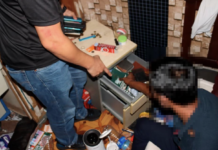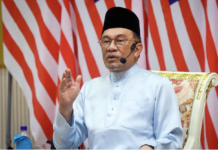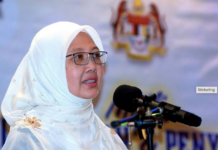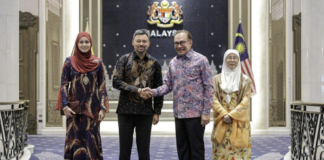KUALA LUMPUR, July 6 — Malaysia needs to be at the forefront in promoting the country’s entrepreneurs to penetrate the global halal industry market, which is expected to reach US$5 trillion (US$1=RM4.66) by 2030.
Deputy Prime Minister Datuk Seri Dr Ahmad Zahid Hamidi said Malaysian entrepreneurs needed to venture beyond the confines of the domestic market and not just produce condiments, sauces or local consumer products.
“Don’t let this (entrepreneurship) become a subsistence economy. Look at bigger markets like China and India, each with a population of over one billion, and help strengthen the country’s economy,” he said when officiating the Formalising the Informal Entrepreneurs Plan here today.
Speaking to reporters after the event, Ahmad Zahid, who is also the Minister of Rural and Regional Development, said currently, Malaysia only contributed less than two per cent to the global halal industry market, which is valued at US$3 trillion in 2021.
On the newly-launched plan, he said it is an effort to register micro, small and medium-sized entrepreneurs (MSME) so that financing, guidance, monitoring and follow-up actions could be carried out.
“This is to ensure that entrepreneurship is not just a part-time job but a full-time formal career,” he said.
He said strategies and initiatives outlined under the plan also provided legal protection and access to appropriate social safety nets, especially during times of crisis.
Ahmad Zahid said the plan would have a significant impact on efforts to register businesses in Malaysia and encourage more people to choose entrepreneurship as a career.
Meanwhile, Minister of Entrepreneur Development and Cooperatives Datuk Ewon Benedick, in his speech, said the plan developed by the ministry is capable to revitalise business performance post-COVID-19 pandemic and indirectly contributing to the growth of the MSME sector.
“Through six strategies that are supported by 20 initiatives, this plan encourages informal entrepreneurs to voluntarily register their businesses while educating them to operate with high ethics and integrity,” he said.
He said informal entrepreneurs consisted of individuals or groups engaged in business activities that are not registered with the Companies Commission of Malaysia (SSM) or any equivalent bodies such as professional bodies or district offices in East Malaysia.
“To formalise their businesses, entrepreneurs need to register their businesses with SSM and obtain the necessary licenses for business operations,” he added.
















